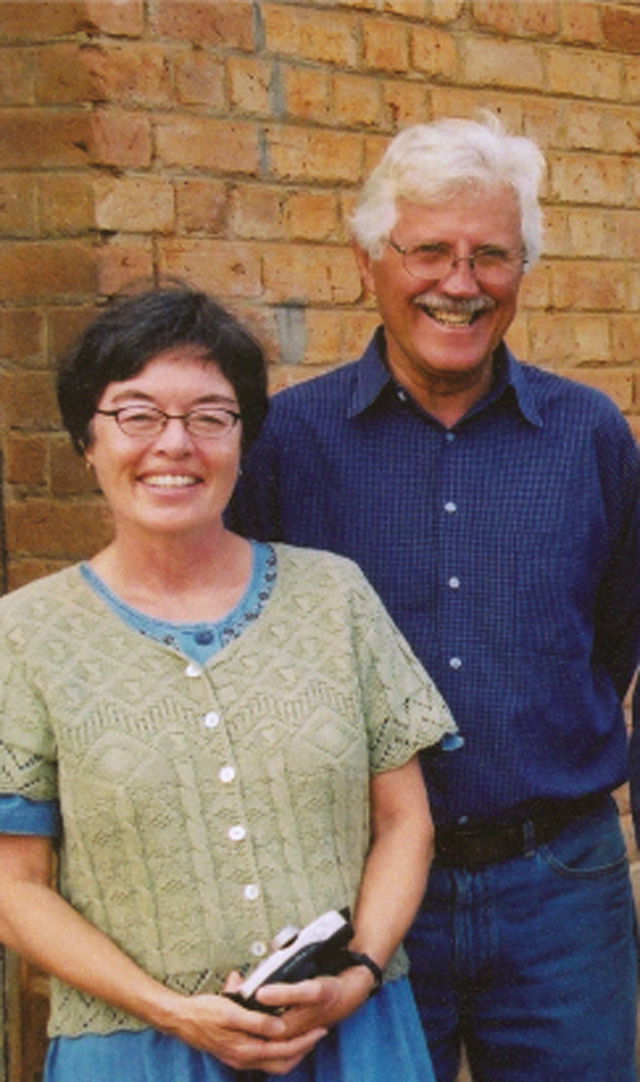“It is through people that we are people”
(Tumbuka saying)
By Ray & Beverley Vantomme
October 2000
Return to Table of Contents
Print Article
Among the Tumbuka people of northern Malawi, the concept of person in community is tremendously important. The spirit of welcoming and hospitality is deep and sincere. When we first arrived at St. Peter’s Parish in Mzuzu, we were warmly welcomed, especially with the traditional handshake and greeting, “Monire.” We were made to feel included. We were told that guests were considered blessings; yet we felt blessed.
Personal relationships, whether family, friends, work colleagues or visitors, are closely tied to family and cultural values. These values play an important part in the people’s faith and expressions of love for God, especially in community worship.
Each week, there is a build-up to the celebration of the Eucharist. Small Christian communities within the parish take turns preparing the church, cleaning, arranging flowers, sweeping walkways. The several choirs practice singing, dancing, drumming, sometimes for hours and sometimes in the rain (if it is to be an outdoor Mass). There is an expectation of something spiritual and communal about to happen. Outdoor Masses have greater preparation as these are usually special celebrations such as Confirmation, special Feast days, or welcoming a newly-ordained priest and his parents.
Bishop Joseph Zuza is a pastoral bishop. He is usually the celebrant at the outdoor Masses at the cathedral and is often seen before celebrations, walking among his people, being in relationship with them, greeting and welcoming them.
The many processions are long and reflect the community. There are women waving beautifully painted gourds; N’goni tribesmen with shields and spears honouring the victory of the Cross; women and men representing various ministries in the parish: altar boys, seminarians, deacons and priests. Again, there is a feeling of anticipation of an event of great importance.
“To dance is to breathe” is often heard said by Africans. They are called the “Dancing Church.” The liturgical expressions in the celebrations of the Mass are from their lived experiences in village life. They celebrate their sense of people, of family, of community, of belonging, of unity. There is joyful singing, utulating (a rhythmic movement of the tongue, creating musical sound), dancing and drumming in praise and love of God. There is energy and life.
The Book of the Gospels (“Book of the Living Water” as it is called) is often welcomed with a great procession. It is placed in a large clay pot, covered with a chitenjie (a beautiful traditional cloth), and a woman will carry this pot on her head proudly and with great dignity up to the lectern. There is incense arising from a smaller clay pot. Again, there is joyful singing, dancing and drumming as the people excitedly anticipate what the Lord will say to them in the Word and through their pastor.
A community in relationship
As a community in relationship, they love to communicate. They enjoy having their pastors preach for a very long time. There is dialogue, there is relationship, there is connectedness. Often when Bishop Zuza preaches, he affirms family and the status of women, speaks about social issues, self-reliance, corruption—issues which relate to the very core of their lives. There is storytelling and the sharing of oral tradition and theology. The Prayers of the Faithful are spontaneous, arising out of the daily needs of the people and revealing the depth of their spirituality.
The offertory procession is splendid. Fruit, eggs, chickens, goats, maize flour and other gifts to provide for their pastors during the coming week, are brought to the altar along with the bread and wine, amid more rejoicing.
The spirit of thanksgiving to God is humbling to witness. For a people who live in one of the ten poorest countries of the world, where the average life expectancy is 36 years, Malawians love God and offer praise and thanksgiving for God’s kindness and goodness. It is a Malawian custom to soundlessly and gently clap their hands in thanksgiving. They do so in the liturgy saying, “Yesu Khristu” (In the name of Jesus Christ, we thank God).
As parishioners leave and begin the many kilometres walk back to their homes, there is chatting and visiting along the way. With most celebrations lasting from two to six hours, many will not eat until late afternoon when they return home. For some there will be no food awaiting them at the end of their journey.
Forever changed
This experience of “Church,” of humanity, has forever changed us. As we re-establish ourselves into Canadian Church and society, we are yet unable to articulate the depth of what we feel. However, this experience of the Body of Christ has entered our lives. This community of Malawi people, though materially poor and vulnerable, know that ‘they are’ because they are in relationship with God and God’s people. Yesu Khristu.
Return to Table of Contents
Print Article
